Links & Helpful Resources
Universities & Colleges
 LSU AgCenter
LSU AgCenterCommunity Colleges
* * * * * * * * * * * * * * * * * * * * * * * * * * * * * * * * * * * * * * * * * * * * * * * * * * *

NAR - National Association of REALTOR®
The National Association of REALTOR® strives to be the collective force influencing and shaping the real estate industry. It seeks to be the leading advocate of the right to own, use, and transfer real property; the acknowledged leader in developing standards for efficient, effective, and ethical real estate business practices; and valued by highly skilled real estate professionals and viewed by them as crucial to their success.

Green Designation for Realtors® The National Association of Realtors® has introduced a new Green designation for Realtors®. The designation will help home buyers and sellers who care about energy efficiency and environmentally sound building practices identify Realtors® who can help them meet their green home goals.
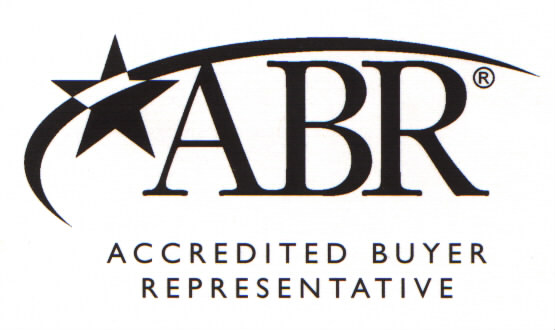
ABR (Accredited Buyer Representative) NAR's designation for real estate buyer agents who focus on working directly with buyer-clients.

SRS (Seller Representative Specialist) The premiere seller agency designation, conferred by the SRS Council, recognizing real estate professionals who have completed special education in seller representation.

Certified Eco-Broker® EcoBroker Certified® professionals help clients market properties with green features, save money, and live comfortably, through energy efficiency and environmentally-sensitive choices.

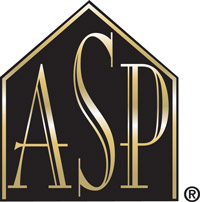
ASP - Accredited Staging Professional
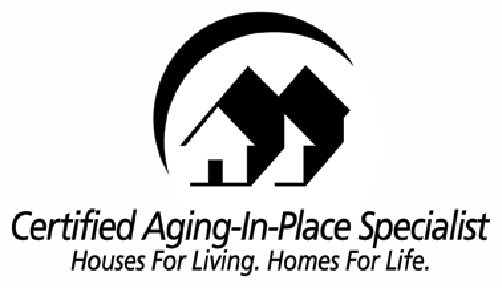
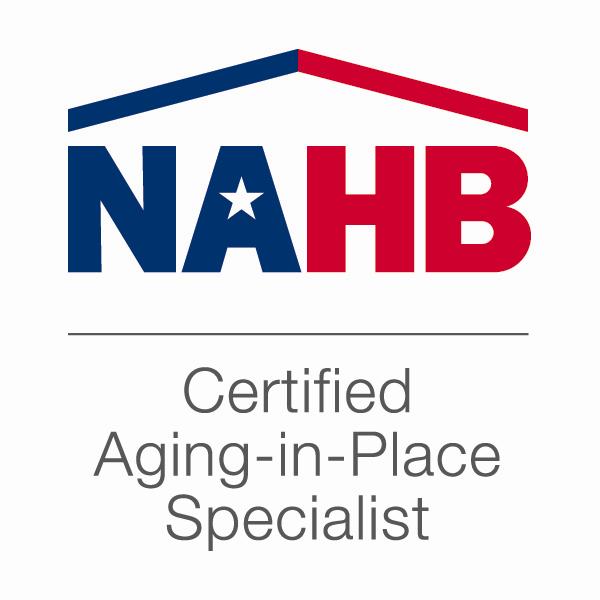
NAHB (National Association of Home Builders)
Member NAHB, and CGP (Certified Green Professional).

CGP - Certified Green Professional ™ The National Association of Home Builders’ Certified Green Professional™ designation recognizes builders, remodelers and other industry professionals who incorporate green building principles into homes— without driving up the cost of construction. Classwork leading to the designation provides a solid background in green building methods, as well as the tools to reach consumers, from the organization leading the charge to provide market-driven green building solutions to the home building industry.

Capital Region Builders Association
Associate member, Education Committee, Green Building Committee.

GBRAR - Greater Baton Rouge Association of REALTORS® A private trade association of licensed real estate brokers and agents, certified appraisers (and some others in affiliated businesses) in the jurisdiction as assigned by the National Association of REALTORS® who have agreed to come together for purposes of self interest and agreed to abide by a Code of Ethics.
Louisiana Weather
Louisiana Flooding
Guidelines to safely and effectively clean and restore your storm damaged home.
Hurricanes
Ideas on what to do to prepare your family and home for a hurricane.

Louisiana Flood Maps
Fema Information for homeowners
Louisiana Wind Speeds and Hazard Zones
Wind Hazard Zones for Louisiana
Go interactive wind speed map for Louisiana

International Code Council

Institute for Business & Home Safety
When I find a great site, I list it here for your access.
Click on the list below, choose one of our web link topics, select a URL to visit.
Environmental Issues
It seems that we hear a lot about environmental concerns these days. Much of it is simply the result of a greater awareness than in the past. And even though there isn't anything to be concerned with in most homes, there are still a number of potential home environmental issues that buyers should be aware of.
Water quality is probably the most common concern and the one most often tested for. Typically, a basic water quality test will check pH, water hardness, the presence of fluoride, sodium, iron and manganese, plus bacteria such as E-coli. Additionally, water may be tested for the presence of lead or arsenic.
In homes built before 1978, lead based paint may be present. Generally, if the lead based paint is in good condition, not cracking or peeling, it is not a hazard. If the condition is hazardous, the paint will either need to be removed or sealed in such a manner as to eliminate the hazard.
Another common environmental concern with the home is radon. Radon is a radioactive gas that comes from the natural decay of uranium in the soil. Pretty much all homes have some radon present, tests can determine if the level present is higher than what is considered safe. If the level is too high, a radon reduction system will need to be installed.
In older homes built more than 30 years ago, asbestos was used in many types of insulation and other building materials. If the asbestos is releasing fibers into the air, it needs to be removed or repaired by a professional contractor specializing in asbestos cleanup. But, if the asbestos material is in good repair, and not releasing fibers, it poses no hazard and can be left alone.
In early 2009, questions about imported or Chinese sheetrock (drywall) made the news. There has been a lot of concern about this issue in certain areas of the country, including Louisiana. Check with your local contractors board, or Builders Association about this topic. Or you can email me directly Sandy@VillarRealEstate for more information.
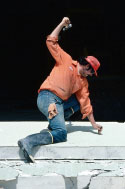 Fixer-uppers
Fixer-uppers
The oft heard phrase "Buyer Beware" is never more appropriate than when considering the purchase of a fixer-upper.You really need to know exactly what you’re getting into before buying.
It’s commonly believed that fixer-upper properties represent easy money that is ripe for the taking - that you can buy it, do a little work on it in your spare time, and then resell quickly for a large profit. Usually, this simply isn't the case. Although, with proper planning and foresight, good profits can be made by buying "distressed" properties at less than market value, making appropriate improvements and repairs, and then reselling. And for many first time buyers who intend to live in the house while working on it, buying a fixer-upper can be the very best option. It’s less risky buying a fixer-upper when you can live in the house while fixing it. And of course, by living in the house for at least 24 months you should be able to avoid paying regular income taxes on the profits.
The most important thing to know before making a decision on such a purchase is what needs to be fixed. Any time you are spending money on improving a home with the notion of selling it later, strive to spend your money on things that buyers can easily see. Things like new paint and removing trash from the property cost little but have instant impact on curb appeal. Houses that have only cosmetic problems like peeling paint, a trashy yard, bad carpet or wallpaper are the best bet. This is especially true for the first time buyer looking to live in the house for a while before reselling. Fixing and cleaning cosmetic issues is fairly easy and inexpensive. It virtually always gives gives a good return on investment, particularly when you can do the work yourself. Kitchen and bathroom remodeling usually pays a nice return. Don’t be afraid of buying a fixer-upper in need of this kind of repair. Properties with structural damage, or a floor plan that requires major work to remedy, usually can’t be "fixed up" at a profit.
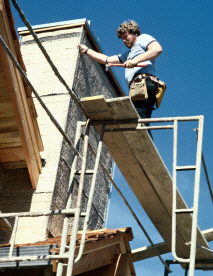 Always have an inspection for hidden damage performed by a home inspector or construction professional before buying a fixer-upper. Make sure that satisfactory completion of such inspections are a condition of purchase in any contract you sign. Then be sure to negotiate to try and get the seller to pay for all or part of the cost of needed repairs uncovered by the inspection. Often, sellers will be willing to lower the sales price to sell the home "as is" instead of paying for the repairs.
Always have an inspection for hidden damage performed by a home inspector or construction professional before buying a fixer-upper. Make sure that satisfactory completion of such inspections are a condition of purchase in any contract you sign. Then be sure to negotiate to try and get the seller to pay for all or part of the cost of needed repairs uncovered by the inspection. Often, sellers will be willing to lower the sales price to sell the home "as is" instead of paying for the repairs.
Be careful that you don’t over pay. Especially if you plan to resell quickly, paying too much up front can doom your plans for quick profit. Research the market for reselling and have an exit plan for selling the house in place before making an offer.
Sandy Scallan is licensed REALTOR® in the State of Louisiana, USA.
Villar & Co. Real Estate
17316 Airline Highway Ste. B
Prairieville, La. 70769
225-744-2610